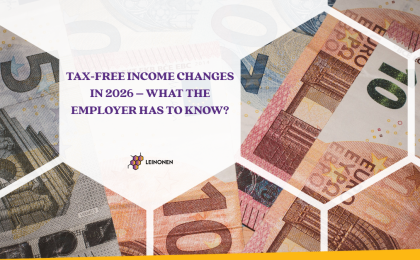Not just any use of a company automobile constitutes a fringe benefit for the purposes of the Income Tax Act. Decision No. 3-3-1-93-08 of the Supreme Court – whose key arguments people ought to be reminded of from time to time – remains in force. The following are some important thoughts from this Decision.
- In order to apply § 48 of the Income Tax Act, a tax authority must establish the object of taxation – the granting of a fringe benefit. The tax authority must prove that the automobile was used for private purposes. It is not sufficient for the tax authority to say that an employee had such an opportunity.
- In a situation where no journey logbook is kept, the tax authority cannot presume that this constitutes, without doubt, private use.
- The lack of a journey logbook does not prove in itself that private journeys are made with the automobile. The tax authority must find and file proof that indicates private use.
- If an employee uses the employer’s vehicle for activities not related to business in a manner that is not a monetarily appraisable benefit and if this does not bring about any expenses for the employer, this does not constitute a fringe benefit for the purposes of § 48 of the Income Tax Act.
The maximum price of a fringe benefit for the use of an automobile of an employer free of charge or at a preferential price for activities not related to employment or service duties or to the employer’s business is 256 euros per month. This means that if no separate recording is kept on the basis of a journey logbook, private use must be subject to taxation to the extent of at least 256 euros.




